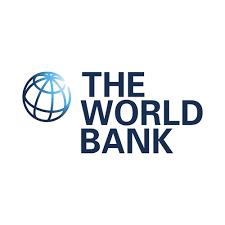
WB Highlights Jordan's Pioneering Path To Addressing Climate Crisis
Amman, May 28 (Petra) -- The World Bank has said that Jordan is facing significant climatic issues, including rising temperatures, decreased precipitation, frequent drought, and water loss due to evaporation.
The bank also stated that the Kingdom is still significantly reliant on fossil-fuel imports, has few natural resources, and has an exceedingly limited water supply for a population of 10.3 million people, including over a million refugees.
Extreme heat and water shortages are increasing energy demand, putting a strain on the budget and harming economic competitiveness, the bank said in a report titled: 'Countries on the Cusp of Carbon Markets.'
However, the WB cited Jordan as the first developing country to build MRV and GHG Registry systems to international standards, which are the key building blocks for future emissions trading. Jordan developed and tested this digital infrastructure in collaboration with the World Bank's Climate Warehouse program and Partnership for Market Implementation (PMI).
To prepare for its MRV system, Jordan passed a climate change bylaw in 2019 that establishes the institutional and regulatory framework on climate change for the entire government.
Jordan established its MRV system with the assistance of PMR, the predecessor to PMI, to track emissions in sectors such as energy, transport, and agriculture, compute emissions and emission reductions, and link the results to the NDC. Its registration system was designed to facilitate transactions involving qualifying projects on international carbon markets. During this process, the decision was made to make the program open source and make it available to any interested nation.
According to the bank, the Kingdom is formulating a long-term, low-emissions strategy to achieve long-term, low-carbon economic growth. Jordan adopted a 10-year National Energy Sector Strategy in 2020 to enhance its energy mix and cut carbon emissions by 10 percent by 2030, thereby decreasing its dependence on imports.
The MRV system is expanded to 22 agencies and ministries as part of the Jordan Inclusive, Transparent, and Climate Responsive Investments Program For Results. The initiative will enable the country's MRV system to compute emission reductions for climate-responsive projects to determine their eligibility for the carbon market.

Legal Disclaimer:
MENAFN provides the
information “as is” without warranty of any kind. We do not accept
any responsibility or liability for the accuracy, content, images,
videos, licenses, completeness, legality, or reliability of the information
contained in this article. If you have any complaints or copyright
issues related to this article, kindly contact the provider above.


















Comments
No comment